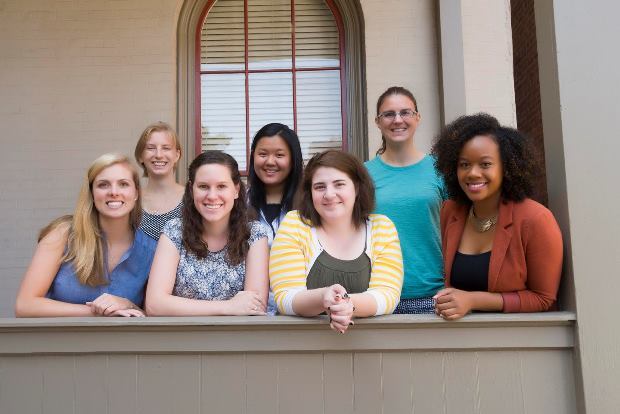VCU chosen again for national ‘Hot Spotting’ initiative
October 23, 2015
Once again, Virginia Commonwealth University is among only a handful of institutions selected to participate in the national 2015 Hot Spotting Collaborative. The project, which involves students from a variety of disciplines, aims to identify and serve the small percentage of patients who account for almost half of total health care expenses in the United States. Last year, VCU was one of only 10 schools in the country to participate after selection by the Association of American Medical Colleges.
VCU is proud to be a frontrunner in the effort again, said Pablo Bedoya, M.D., assistant professor of internal medicine in the School of Medicine and the project’s principal investigator.
“We are thrilled that VCU was selected as one of 20 medical schools from dozens that applied across the country to participate in the 2015 Student Hot Spotting Project. We are building on the lessons learned last year by scaling up this program to two student teams,” he said. “Students selected for VCU's first interprofessional team in 2014 reported that it was a very valuable experience and that they gained tremendous insight into their patients’ lives and how their social circumstances impact their health.”
As part of last year’s research, lack of reliable transportation, low health literacy and patient-provider communication issues were among the social factors recognized as barriers to patients’ improved health, said Emily Pratt, a social work student and member of the team.
Consequently, the hot spotting project will provide an immediate benefit to the patients who are connected with resources and services.
“This knowledge then can be used to more effectively meet the physical, psychological and social needs of patients who have complex medical diagnoses. These patients are high utilizers of the health care system, because they face significant barriers that impair their ability to receive comprehensive care,” said Melissa Abell, Ph.D., an associate professor and program director for the Master of Social Work program at VCU, who is serving as adviser to the social work students in the project. “With this team approach, health care providers can facilitate patient care in a way that is patient-focused, home-based and cost-effective.”
Abell added that the interdisciplinary focus of the project is essential. Students from a wide range of professions are involved this year, including from medicine, dentistry, psychology, nursing, pharmacy, social work and community health.
In September, the two VCU student teams, which included students from both this year and last year, started working directly with medically and socially complex patients from the Metro Richmond area with multiple hospitalizations. Students attended a July summit in Camden, New Jersey, on the issue and will work on the project through December. The project is being coordinated through the Center for Interprofessional Education and Collaborative Care.
Rachel Weiskittle, who is pursuing her Ph.D. in clinical psychology at VCU, attended the July summit and said the preliminary work among groups has been beneficial.
“We’ve learned how important it is when you work on an interdisciplinary team to have positive, open communication,” Weiskittle said. “That is the best way to improve patient outcomes. We are building our own team relationships in preparation for recruitment of patients.”
Currently, students are working with physicians at VCU Hayes E. Willis Health Center on Richmond’s Southside to identify patients who would benefit from the hot-spotting research.
Bedoya said this year’s project has two major goals. One is to learn about the experiences of complex patients, including everyone from those with unstable housing situations to those with mental illness. The other is gaining insight on the social determinants of a patient’s health that drive repeated hospitalizations. Research may involve visiting patients’ homes and accompanying them to outpatient clinic appointments.
The project provides benefits that are both socioeconomic and forward thinking for health care, Bedoya said.
“This project will provide a long-term societal benefit by preparing students to meet the needs of these complex patients once they become health professionals,” he said. “In order to achieve the triple aim of better care, better health and lower costs, the country needs health professionals who understand how to work in interprofessional teams to address the medical, behavioral health and social needs of complex patients.”
Team 1
Jessica Gaddy (social work)
Victoria Weiser (pharmacy)
Suzanne Giunta (medicine)
Samone Brockett Franzese (medicine)
Rachel Weiskittle (psychology)
Molly Battle (nursing)
Team 2
Deborah Me (medicine)
Jennifer Tran (medicine)
Sarah Clark (psychology)
Liz Greksouk (nursing)
Katherine Wallace (social work)
Molly Wacek (nursing)
